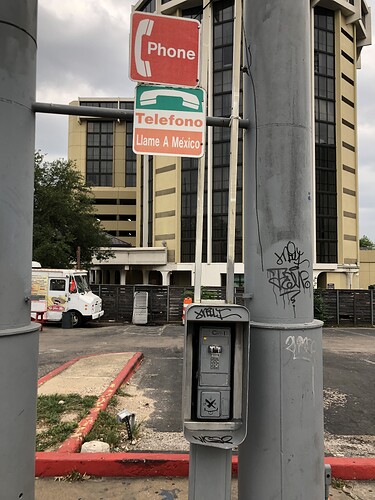I am using OSM data on my travels and one of more annoying failures is case where I arrived at some drinking water source, discovered that it is broken/gone/disused/abandoned. And on editing OSM it turns out that it was already marked this way but in a very weird way.
Here I want to handle:
amenity = drinking_water
amenity = water_point
man_made = water_well
with one of
condition = not_working
working = no
disused = yes
operational_status:availability = never
operational_status = out_of_order
operational_status = broken
operational_status = closed
operational_status = non_operational
operational_status = non operational
operational_status = non-operational
operational_status = no
operational_status = No
operational_status = Non-Functional
operational_status = Non-operational
operational_status = non opérationnel
operational_status = non
operational_status = Non-Operational
operational_status = non fonctionnel
operational_status = non_functional
operational_status = Non aperationnel
operational_status = Closed,Need repair
stateofrepair = broken
wetap:status = broken
Edit would use lifecycle prefixes and replace use of operational_status and similar. This would make using this data far more feasible. If someone is interested in nonfuctional water sources, they can query also for lifecycle-prefixed ones. If someone is not, then they are far less likely to get ugly surprises. Typical edit would look like this:
for Node: 5036984190 | OpenStreetMap
- removed: amenity = water_point
- removed: man_made = water_well
- removed: operational_status = out_of_order
- added: disused:amenity = water_point
- added: disused:man_made = water_well
for Node: 5036984192 | OpenStreetMap
- removed: amenity = water_point
- removed: operational_status = broken
- removed: pump = manual
- added: disused:amenity = water_point
- added: disused:pump = manual
this edit makes sense as having wild variety of
hahaha_this_object_is_not_actually_working=yes is not reasonable
main problem here is that say
operational_status = closed
amenity = drinking water
may be actually now fully gone, or abandoned - not merely disused
But I think it is worth doing it as tagging it as operational (with amenity = drinking water) is heavily misleading.
There is a variety of checks and tests, cases where bot encounters unexpected data are skipped. For example if note or description key is preset entry is skipped. If key pump has unexpected value entry is skipped - the same for many other keys. If object also has say ruins=yes or abandoned=yes it is skipped as maybe it is not merely disused. In general any unexpected tag causes object to be skipped.
I tried contacting mappers but this tagging is primarily coming from organised edits/imports and people who added them are inactive and not responding to changeset comments. It is also primarily present in areas where opening notes results in no results whatsoever.
Still, if people think it is a good idea I can first do bot edit where I post changeset comments to people who used this kind of tagging and ask them for feedback.
Edit would be global and recurring if such tagging would reappear.
see also Tagging inactive water wells: man_made=water_well + disused=yes vs disused:man_made=water_well (where preferred tagging was discussed some time ago) and Trolltag - OpenStreetMap Wiki (describes my complaint about tags like operational_status=Non-Functional)
see also [OSM-talk] make water sources more usable by marking disused ones with lifecycle prefix, rather than extra tags like operational_status = out_of_order for discussion about this proposed bot edit on mailing lists
